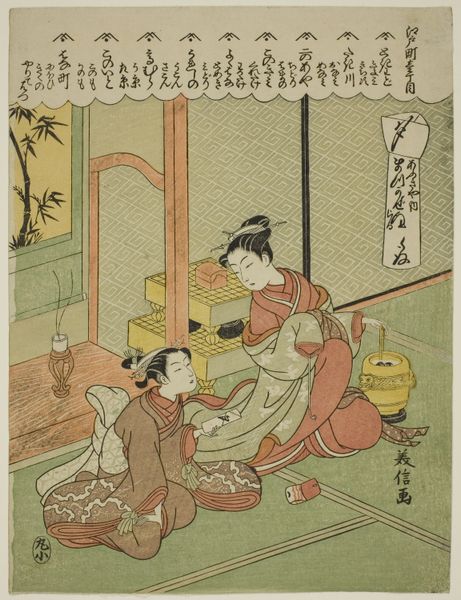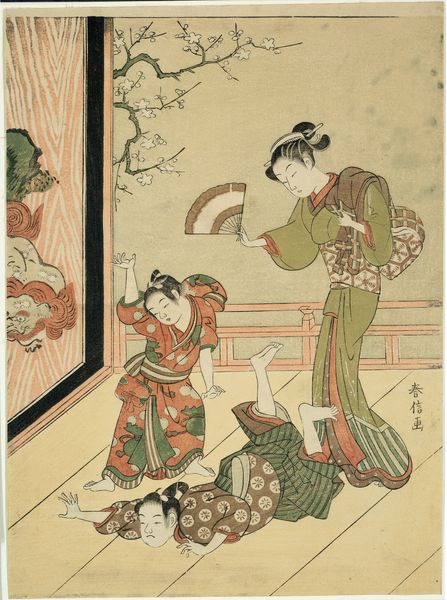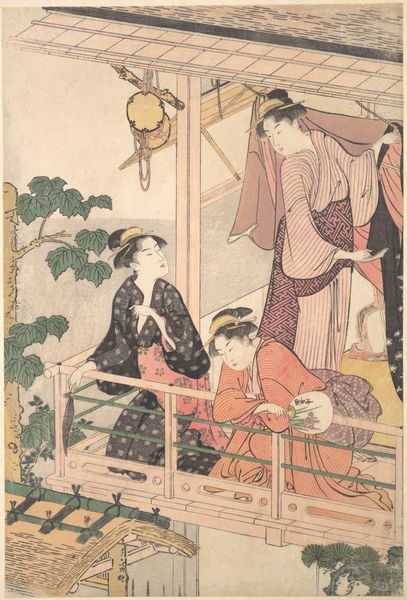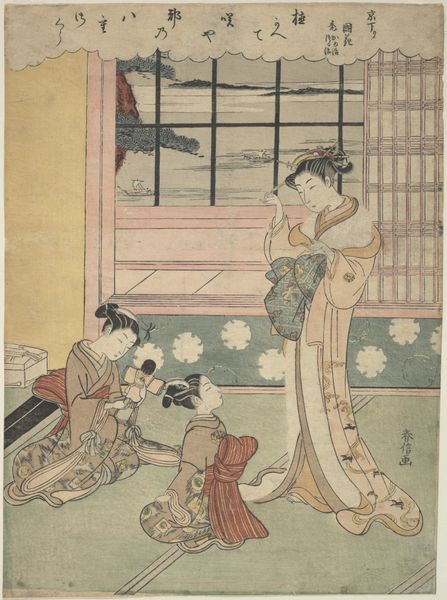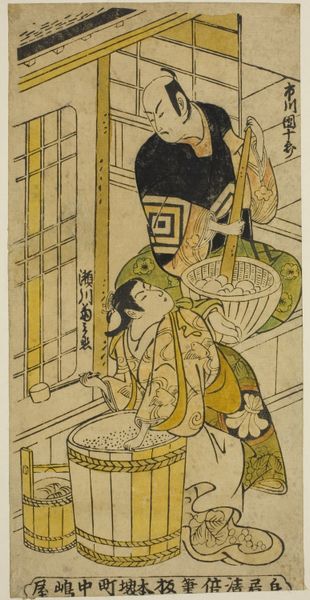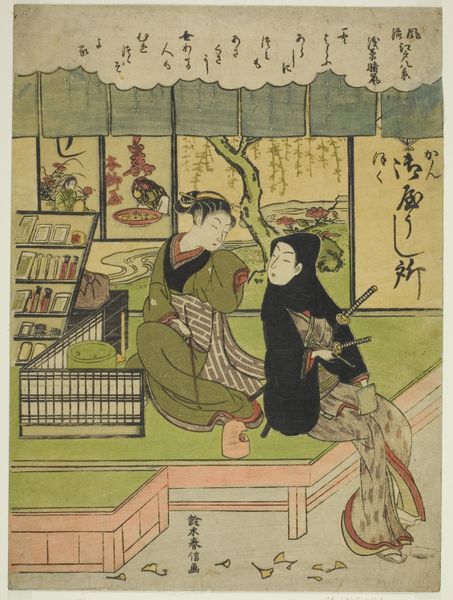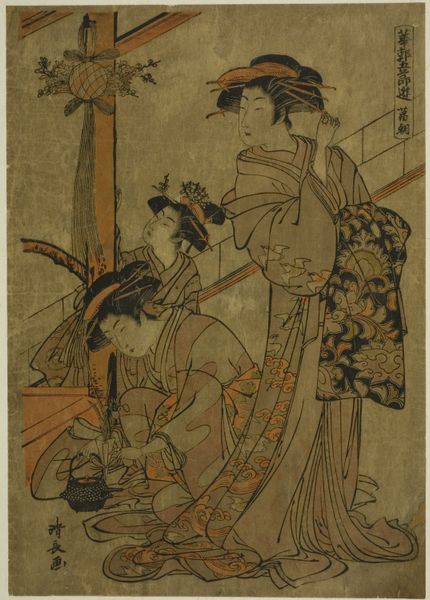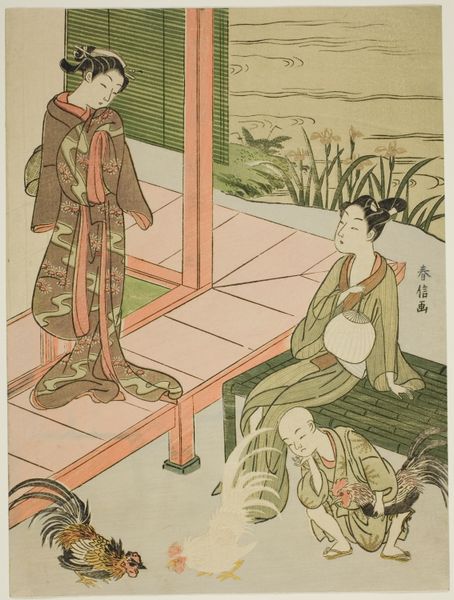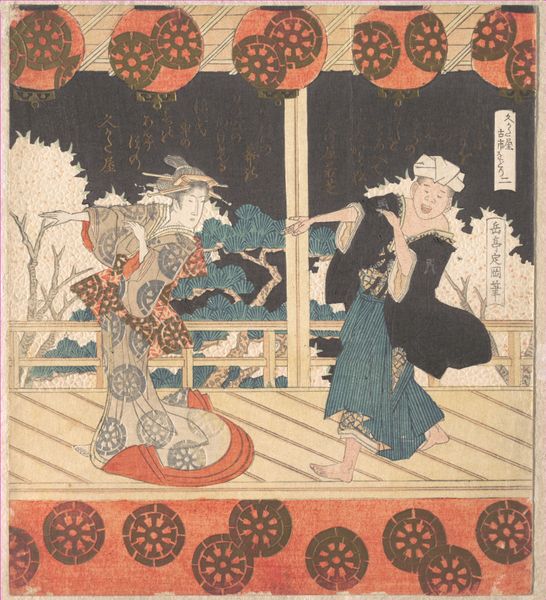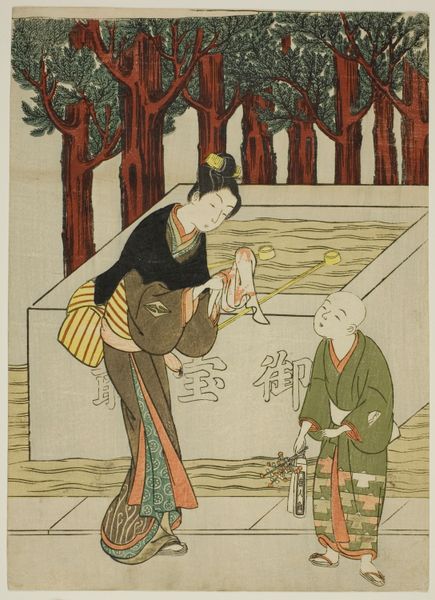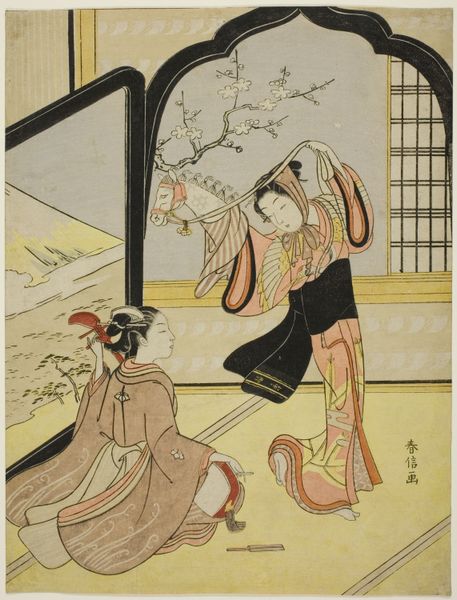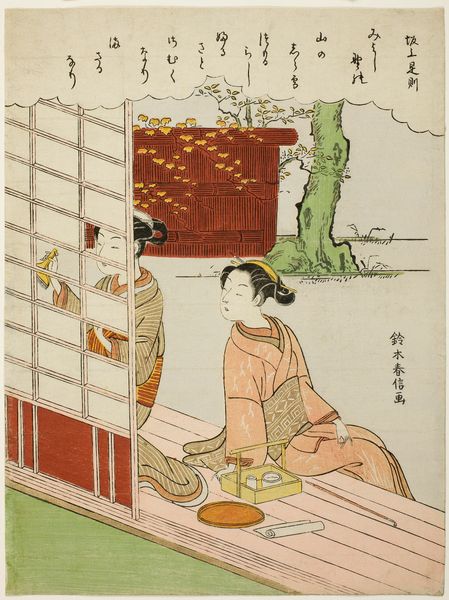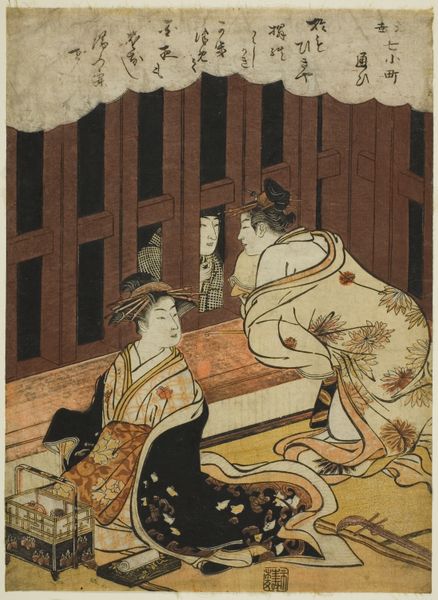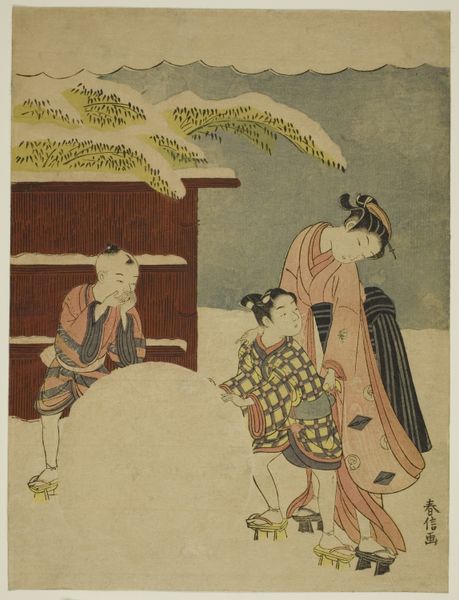
Hotei, from the series "Seven Gods of Good Luck in Modern Life (Tosei Shichi-fukujin)" c. 1769
0:00
0:00
print, woodblock-print
# print
#
asian-art
#
ukiyo-e
#
woodblock-print
#
genre-painting
Dimensions: 11 × 8 in.
Copyright: Public Domain
This woodblock print by Suzuki Harunobu, dating back to the 18th century, presents Hotei, one of the seven gods of good fortune, enjoying a playful moment with children. Hotei, traditionally depicted as a jovial, bald man with a large belly, symbolizes contentment and abundance. Here, his exposed belly invites interaction, a motif echoing ancient fertility symbols found across cultures, from the Venus figurines to Bacchus, the god of wine and fertility. The children surrounding Hotei are reminiscent of putti in Renaissance art, linking earthly joy with divine benevolence. Notice how the female figure near the window seems to be looking outwards: this represents the cyclical nature of fortune, which ebbs and flows, influenced by both divine will and human action. The image is more than just a snapshot of daily life; it is a convergence of cultural memory and subconscious desires, reflecting a timeless longing for prosperity and happiness.
Comments
No comments
Be the first to comment and join the conversation on the ultimate creative platform.
